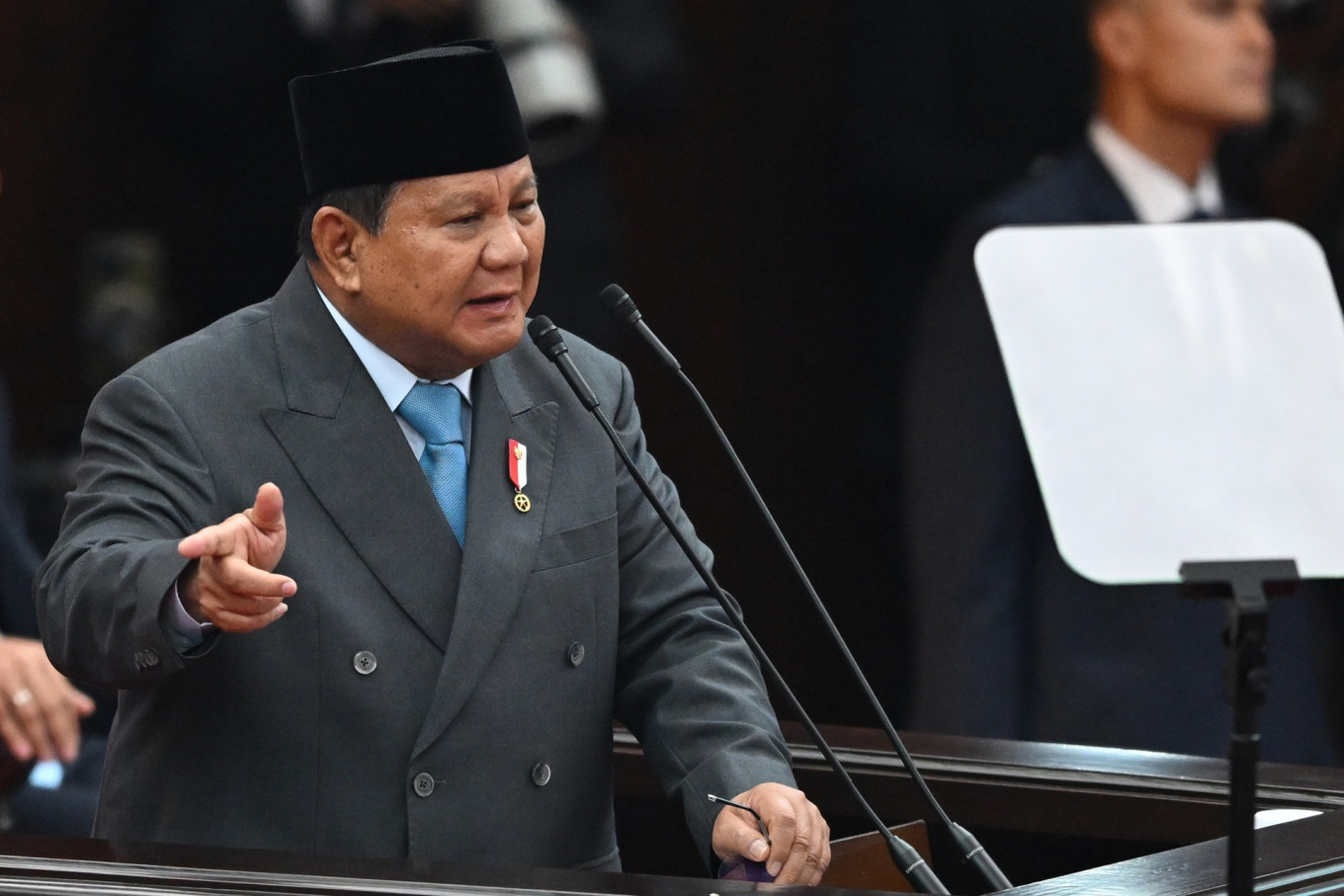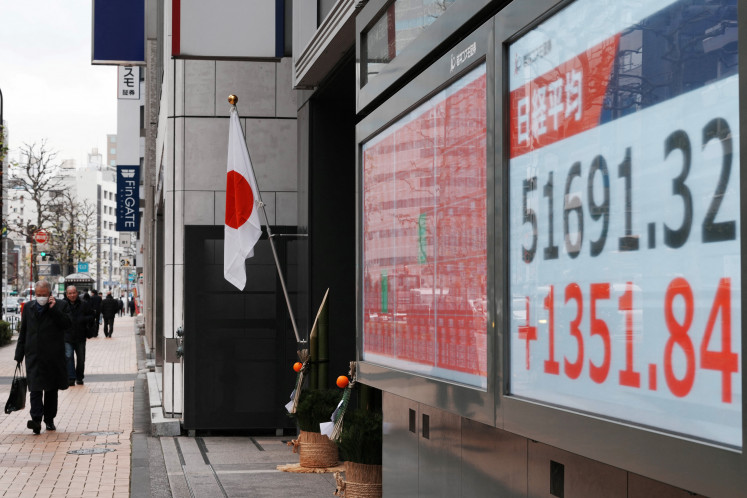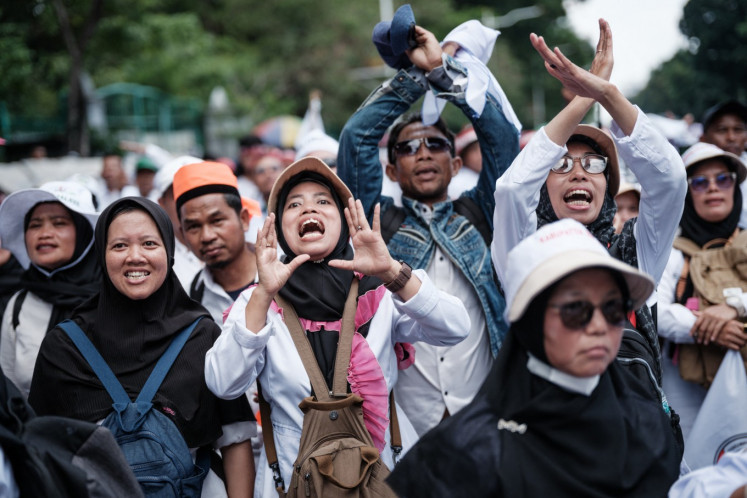Popular Reads
Top Results
Can't find what you're looking for?
View all search resultsPopular Reads
Top Results
Can't find what you're looking for?
View all search resultsDevaluing state honors
The awards no longer signify a person's dedication to the state, but rather mark their loyalty to the President.
Change text size
Gift Premium Articles
to Anyone
P
resident Prabowo Subianto lavished civilian honors upon more than 140 figures last week, some of them posthumously, an act that hardly fulfills the intended purpose of the state awards for at least two reasons.
First, the medals constitute the state’s recognition of extraordinary services and sacrifices of the recipients so that the nation can look up to and learn from them. Each medal carries an intrinsic value of exemplarity, which is why only figures with certain qualifications deserve the award.
The fact is many, if not most, of the honors conferred on Aug. 25 went to his inner circle, precisely those who helped him win his presidency, regardless of their checkered past. A review of the honorees’ backgrounds shows that some have been linked to human rights abuses, corruption cases and moral violations like plagiarism.
No less controversial is that the state honor also went to a minister who is trying to rewrite national history by erasing the mass rapes of Chinese women during the May 1998 tragedy. Due to public uproar, the project has been put on hold, but will not likely stop.
Second, many of the honorees have yet to prove their contributions to the state. The ministers, deputy ministers and government agency heads received the awards only 10 months into their terms and are still struggling to implement the President’s vision. They were honored for fulfilling their duties, not for their achievements, which runs counter to the requirements to receive the awards.
According to Law No. 20/2009 on titles, awards and honors, recipients of the civilian honors must meet specific criteria, such as having made extraordinary contributions that benefit the integrity, continuity and glory of the nation and state.
Under Government Regulation No. 35/2010 that implements the law, recipients of the Republik Indonesia and Mahaputra medals, the two highest awards, are entitled to a burial at the Heroes Cemetery when they die. Other benefits of civilian honors include access to state ceremonies, but for medical workers who received the medals posthumously the awards also take the form of death benefits for their heirs as in the case of frontline doctors and nurses who died during the COVID-19 pandemic.
In the words of scholar Arif Susanto the awards are no more than a “clearance sale of state decorations”, where the bar for their recipients has been significantly lowered. Former chairman of the Pancasila Ideology Development Agency (BPIP) Yudi Latif is equally critical, saying that the medals, once bestowed upon those who carry the weight of the Republic, now fall to the level of mere political badges.
The awards no longer signify a person's dedication to the state, but rather mark their loyalty to the President. Prabowo is not alone, as his predecessors also took advantage of the prerogative to reward their wives, children, cronies and loyalists.
As defense minister, Prabowo received the Mahaputera Adipradana medal from then-president Joko “Jokowi” Widodo last year, in addition to the honorary four-star military rank. Earlier this year, President Prabowo awarded honorary four-star ranks to his aides and friends.
There was widespread public rejection of the honors from academics, intellectuals and civil society groups, who questioned the integrity and significant contributions of the award recipients. The profiling process for the recipients is believed to lack transparency and public participation as required by the law.
Perhaps the “clearance sale of state decorations” was among the sources of public anger that culminated in the series of demonstrations last week. The fact that the award presentation ceremony took place when students were rallying outside the House of Representatives to air their grievances simply showed where Prabowo stands.
State Secretary Hadi Prasetyo has indicated that the tradition will continue in the years to come as the state has not recognized many deserving figures. The risk is there that the honors will be devalued into what Yudi Latif calls souvenirs and tokens of appreciation for loyal wingmen of the powerful.











